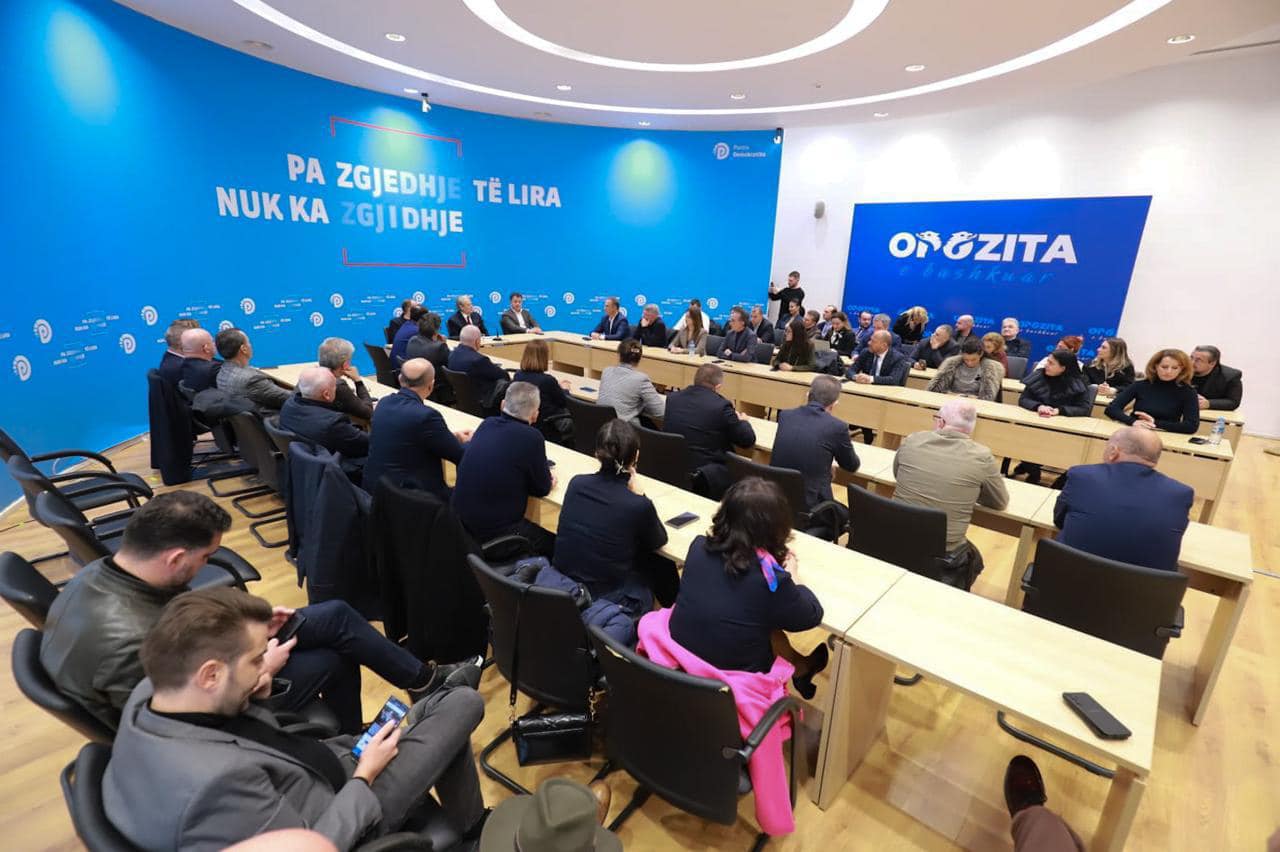Berisha attacks Constitutional Court judge amid feud with former colleague

Sali Berisha, leader of the Democratic Party (DP), has continued his campaign against Albania’s justice system, shifting his attacks from the Special Anti-Corruption Structure (SPAK) to the Constitutional Court. His latest accusations center on Judge Marsida Xhaferllari, whom he claims has broken the law by failing to declare her domestic partnership with Berisha’s former Minister of Justice and current leader of a DP splinter group. Critics, however, see this as another attempt by Berisha to stir public debate over a non-issue, exposing ulterior motives tied to his political and legal challenges.
Why is this important: Berisha’s accusations against Xhaferllari have raised questions about his intentions, as her relationship with Enkelejd Alibeaj, leader of Djathtas 1912, has long been public knowledge. Their domestic partnership was well known even when Berisha supported Xhaferllari’s appointment to the Constitutional Court in 2019. At the time, Berisha and Alibeaj were still politically aligned, and the judge’s appointment was backed by the opposition. Now, this attack appears designed to not only discredit the judiciary but also undermine Alibeaj, who leads the splinter group that broke away from Berisha’s DP.
Berisha’s outrage appears highly selective. While he has publicly attacked Xhaferllari, he has conspicuously avoided mentioning another judge on the Constitutional Court who is married to a staunch Berisha ally and a prominent figure at a television network aligned with Berisha’s party. This inconsistency has fueled speculation that his campaign is politically motivated, aimed at damaging both the justice system and Alibeaj’s credibility, rather than being a genuine concern about upholding legal principles.
Context: The dispute between Berisha and Alibeaj highlights the deep and seemingly irreparable divisions within Albania’s political right ahead of the general elections. The opposition remains hopelessly fragmented, while surveys suggest that the ruling Socialist Party (SP) is heading for a landslide victory in May. Yet, instead of attempting to unite all opposition forces, Berisha appears to be burning bridges with potential allies, raising questions about his true priorities.
For Berisha, the fight against the justice system appears to outweigh any effort to unify the opposition. This is unsurprising, given his mounting legal troubles. He has already been indicted for corruption, alongside his son-in-law, over the privatization of the Partizani sports complex. Berisha and his family have been declared persona non grata by the United States, and there is a real possibility that SPAK’s investigations could expand to involve other family members. These investigations include grave cases, such as the January 21, 2011, massacre and the Gërdec explosion, in which Berisha’s son has long been accused of involvement.
What else was said: In his response, Alibeaj dismissed Berisha’s accusations as baseless and politically motivated. He criticized Berisha’s pattern of personal vendettas, which he said extend not only to political rivals but also to their families. Alibeaj accused Berisha of dragging the opposition into his personal battles, warning that this approach risks undermining their collective efforts against the SP.
Alibeaj identified his vote in favor of removing Berisha’s immunity in the parliamentary commission on MP mandates as the true trigger behind Berisha’s attack. It was this vote that paved the way for Berisha’s eventual indictment.


